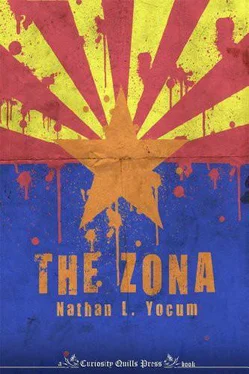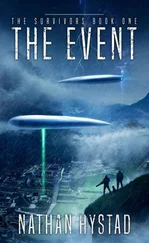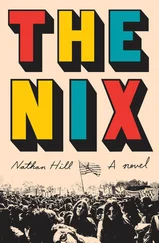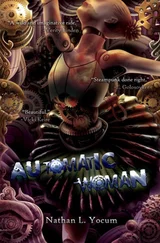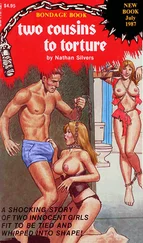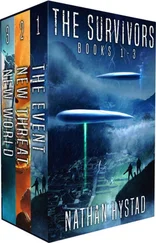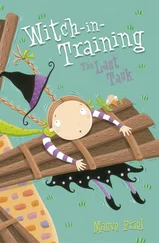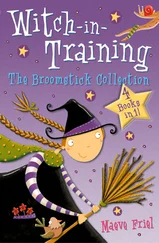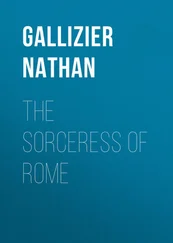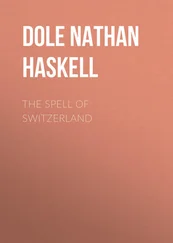Terence turned away.
“I killed Chris and John. Nothing is right after that.”
Terence pushed the toe of his boot into the sand.
“You ever love anyone?”
Lead thought about it. “Jesus…my mother too I guess,” he replied.
“What about real women, not relation?” Terence asked.
“The ones at the fugee camp were older. Young ones were removed earlier on. Only ladies at Flagstaff camp were Marys or Goodwives. Preacher ain’t supposed to take a wife anyway; doesn’t fit the life and purity.”
Lead closed his eyes. He listened to the wind scour the tarp with sand.
“You didn’t kill your kinfolk,” Lead said. “It was the Storms. Storms killed lots of folk…”
Terence interrupted Lead. “A day later, walking the mountain roads to Julian town, seeking higher elevation, I killed a man with my hands.”
Terence looked to his clenched fists.
“He was middle-aged, simple-minded by the sound of his speech. He was scared, and desperate, and hungry. He wanted the food in my pack. I beat him with my fists until he stopped moving and breathing. I broke two of my fingers punching his face over and over and over. I beat on that man until he stopped moving and twitching and long past when he went over. I threw his body into a flood stream. I assumed I would feel bad about it, but at the time I didn’t. It didn’t matter. It was all part of my new tragic, empty life.”
Terence shifted.
“I hiked to Calexico where I met a group of guards tasked to hold the border against Mexican fugees. The Mexicans had it way worse than us with the Storms. The guards needed manpower to push back the hordes of men migrating north. I was young and able-bodied and American. I volunteered and that was that.”
Lead listened to the wind. He waited for Terence to say more, but Terence was finished. Lead drifted to sleep imagining cities filled with water.
They woke in the early evening. Terence folded his reflective tarp and placed it back into his knapsack. He pulled the jars from the water traps and handed one to Lead.
“It’s not going to taste right and it might hurt your stomach a little. The important part is to not let it out. Keep the water in you because that’s the only thing that is going keep you alive out here.”
Lead looked at the cloudy inch of water at the bottom of the jar. It smelled like cut plants. It tasted bitter and wrong. Lead held his breath in his nose and swallowed the rest. He handed the jar back to Terence.
Lead gagged and clenched his stomach until the nausea passed. Terence drank from his jar, gritted his teeth and sucked wind against the bitterness. Terence put the jars back in his knapsack. They began their nightly journey.
The ex-Preachers came upon a river of cars half buried in sand. In the distance, moon light reflected off of rows of windows reaching out to both horizons.
“That’s the Highway Eight. It starts under water in the Storm land and kind of runs through the ruin of mankind. From the old Pacific shoreline through the Zona, through kingdoms and lands I’ll never see,” Terence said.
The cars stood still and quiet and endless. Lead brushed the dust off of a windshield. A bleached white skeleton smiled back at him with its lipless eternal brilliance. Fleshless fingers rested on the steering wheel. A gentle breeze blew through the interior and shifted the tatters of the skeleton’s shirt.
“Don’t touch anything,” Terence said.
He gently pulled Lead away from the windshield. “Looks like virus sixteen or twenty-three, both were quick killers. Can’t see any other way someone would pass away clutched to a steering wheel.”
“What about a gunshot?” Lead asked.
“No. He would have lain down to bleed out, unless it was a headshot, which isn’t the case here. The skull is still intact.”
The two stared at the corpse for a silent minute.
“Come on, we follow the Highway Eight for a now. Don’t get too close to the cars. I don’t want to stir anything.”
Terence and Lead walked through the dunes next to the highway, past cars and trucks consumed by rust and dirt. The wind kicked up the earth and colored the air, making all things brown.
VIII. The Tucson Colony, a home for lepers and madmen
The border of Tucson was marked with burned-out house frames and punctuated with obliterated trailer parks. It reminded Lead of Kingman in its charred abandonment. Past the destruction, camp fires glowed and broke the evening black and attested to life in the town.
“We need to leave the highway now,” Terence whispered.
“Middle Tucson is a haven for lepers, resilient virals, and madmen. The Church dumped them here.”
Beyond the rows of buildings Lead looked to the bonfires and lit buildings. An inhuman whooping rode the night winds.
Terence pulled Lead’s six-shooter from his knapsack.
“In case there’s trouble you’ll want this.”
He handed the pistol back to Lead, handle first.
“You’re out of bullets.”
“I know.”
The gun felt comfortable in Lead’s hand, like the return of an appendage. He gripped the handle and felt its weight. He had relied on this tool for so long that it had become part him.
The ex-Preachers followed the edge of Tucson south, avoiding the noise and movement of the inhabitants. They lurked silently in the darkness. Lead clutched his gun and looked to the villagers circled in the fire light.
“We need to talk to them,” Terence whispered. “Without fresh water we won’t make it to New Pueblo.”
“What about plague?” Lead was worried. He had not forgotten his hard lesson about savage villages.
“No choice. We can’t live on cactus water. We need this.”
Lead followed Terence to the outskirts of a bonfire fueled by house lumber and furniture. His mind returned to the fire of the Jimson eaters near Havasu.
Around the bonfire stood men and women whose faces and bodies were cracked and twisted by mutation, radiation, and disease. They resembled the living dead; eating, speaking, and laughing in the flickering light. Faces stood without eyes, arms without hands, legs without feet. What skin showed was pocked and marred by sickness or scar. The villagers fell silent at Lead and Terence’s approach. Lead held up his gun, visible to the fire light.
“We mean you no trouble. We’re here on the Lord’s business,” Lead said. He rested his gun against his right thigh.
The nearby men stood up. Those who had hands clutched planks of firewood. One of them hefted a shovel. Terence stepped forward in haste.
“My friend misspoke. We are not here on the Lord’s business. We are men on our way south, looking to leave behind the Church. Let us pass without delay or violence.”
The man with the shovel approached Terence. He was dressed in dirty blue jeans and a red flannel shirt. Half of his face had lost shape and resembled melted wax illuminated by the camp fire. Thin arms held the shovel over his left shoulder.
“Look at these lovelies,” the man said over his shoulder in a strange, slurry accent.
“All dusty from the winds. Coming up from the sands like desert djinns. Who are you, rags?”
The man’s mouth twisted into a half smile, the disfigured side of his face remained solid, immobile.
“I’m Terence Wood, Terence the Dead if you recognize the name. This is Lead, he travels with me,” Terence said.
Читать дальше
